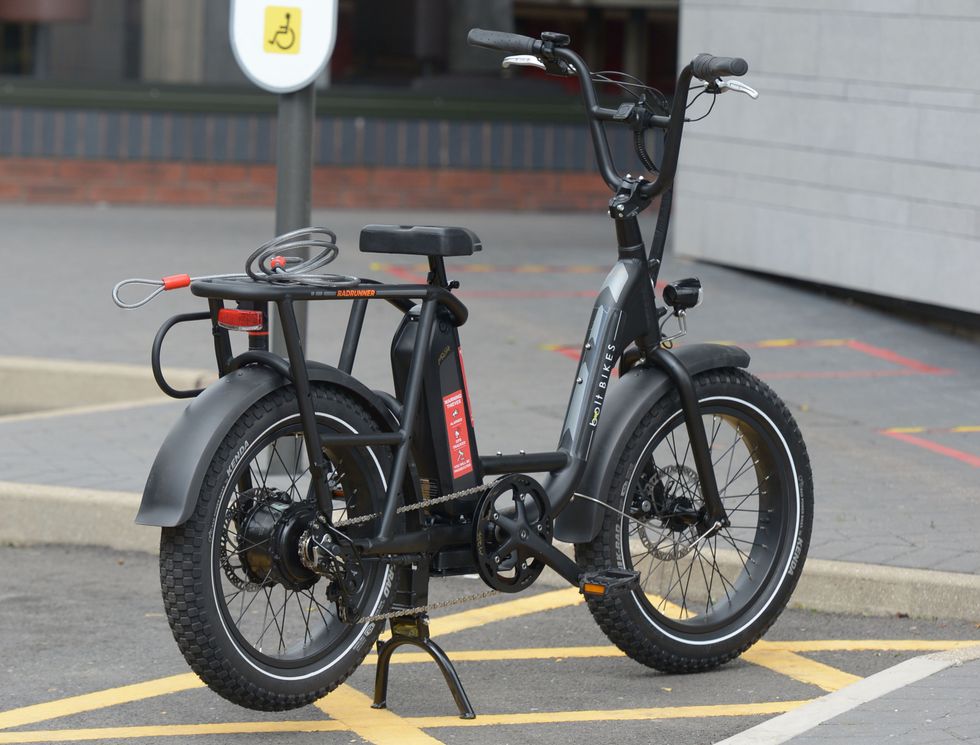Hemma Visavadia
Guest Reporter
E-bikes and e-scooters could soon be required to have insurance for riders to use them in public areas as support for more safety measures gains momentum.
It follows a debate in the House of Lords held earlier today where peers shared their growing concerns over the safety measures in place for e-scooters and bikes.
Baroness Pidgeon from the Liberal Democrats raised initial safety queries during the debate, prompting discussion about wider regulation needed for electric vehicles.
The debate highlighted particular concerns about the current lack of insurance coverage, which leaves victims uncompensated in the event of accidents.
Do you have a story you'd like to share? Get in touch by emailing [email protected]

Lord Hogan-Howe, addressing the House, pointed out that insurance could play a "positive role in modifying human behaviour" through its premium structure.
"The premiums reflect the risk, and so the higher the risk, the higher the premium," he explained.
In response, Lord Hendy of Richmond Hill, the Minister of State for the Department for Transport highlighted that since people don't need licences for these vehicles, enforcing insurance requirements would present significant difficulties.
But Hendy did acknowledge that "in the absence of insurance if there is an accident and people are injured or worse... there is a real problem."
According to official reports, approximately one million people aged 16 or over owned an e-scooter in England as of December 2023.
Current e-scooter trials, which began in July 2020, are set to continue until May 2026 and remain the only legal way to use these vehicles on public roads.
The minister said that while legislation to regulate e-scooters was announced in May 2022 by the previous Conservative Government, it was never implemented. "It is a priority for my department and we will move to tackle this as soon as possible," he told peers.
The House also heard how some local initiatives, like the Essex Road Safety Partnership, conduct temporary enforcement campaigns against illegal e-scooter use.
Lord Watts referenced Spain's approach, where fines have been introduced for speeding and riding without helmets. Responding to these points, Hendy noted that there is "no consistency across Europe" in how different countries regulate e-scooters and e-bikes.
The minister highlighted variations in approaches, including "minimum ages, whether or not you can ride them on pavements, whether you need mandatory helmets," with some countries implementing registration schemes.
The Government plans to develop legislation specifically tailored for the UK context, drawing from international examples, he added.
But the Lord Bishop of St Albans raised serious concerns about deaths involving e-bikes and e-scooters on pavements during the debate. He specifically highlighted risks to disabled and partially sighted pedestrians, calling for their protection to be prioritised.
LATEST DEVELOPMENTS:

Hendy acknowledged these safety concerns, stating: "I would absolutely recognise the risk to pedestrians from scooters and for that matter, e-bikes and ordinary cycles."
The minister assured that the needs of disabled, partially sighted and blind people would be "very fully" considered in upcoming legislation.
"We want people to feel safe walking around their town, cities and countryside," Hendy added stating that riding bikes and e-scooters too fast on pavements was "completely unsatisfactory" for vulnerable pedestrians.
Find Out More...
It follows a debate in the House of Lords held earlier today where peers shared their growing concerns over the safety measures in place for e-scooters and bikes.
Baroness Pidgeon from the Liberal Democrats raised initial safety queries during the debate, prompting discussion about wider regulation needed for electric vehicles.
The debate highlighted particular concerns about the current lack of insurance coverage, which leaves victims uncompensated in the event of accidents.
Do you have a story you'd like to share? Get in touch by emailing [email protected]

Lord Hogan-Howe, addressing the House, pointed out that insurance could play a "positive role in modifying human behaviour" through its premium structure.
"The premiums reflect the risk, and so the higher the risk, the higher the premium," he explained.
In response, Lord Hendy of Richmond Hill, the Minister of State for the Department for Transport highlighted that since people don't need licences for these vehicles, enforcing insurance requirements would present significant difficulties.
But Hendy did acknowledge that "in the absence of insurance if there is an accident and people are injured or worse... there is a real problem."
According to official reports, approximately one million people aged 16 or over owned an e-scooter in England as of December 2023.
Current e-scooter trials, which began in July 2020, are set to continue until May 2026 and remain the only legal way to use these vehicles on public roads.
The minister said that while legislation to regulate e-scooters was announced in May 2022 by the previous Conservative Government, it was never implemented. "It is a priority for my department and we will move to tackle this as soon as possible," he told peers.
The House also heard how some local initiatives, like the Essex Road Safety Partnership, conduct temporary enforcement campaigns against illegal e-scooter use.
Lord Watts referenced Spain's approach, where fines have been introduced for speeding and riding without helmets. Responding to these points, Hendy noted that there is "no consistency across Europe" in how different countries regulate e-scooters and e-bikes.
The minister highlighted variations in approaches, including "minimum ages, whether or not you can ride them on pavements, whether you need mandatory helmets," with some countries implementing registration schemes.
The Government plans to develop legislation specifically tailored for the UK context, drawing from international examples, he added.
But the Lord Bishop of St Albans raised serious concerns about deaths involving e-bikes and e-scooters on pavements during the debate. He specifically highlighted risks to disabled and partially sighted pedestrians, calling for their protection to be prioritised.
LATEST DEVELOPMENTS:
- Martin Lewis responds to major update on car finance scandal after floodgates open for driver complaints
- Hundreds of drivers slapped with fines for breaking Highway Code safety rules
- Wales's 'blanket' 20mph rules see penalties concentrated on two main roads - ‘Targeted approach’

Hendy acknowledged these safety concerns, stating: "I would absolutely recognise the risk to pedestrians from scooters and for that matter, e-bikes and ordinary cycles."
The minister assured that the needs of disabled, partially sighted and blind people would be "very fully" considered in upcoming legislation.
"We want people to feel safe walking around their town, cities and countryside," Hendy added stating that riding bikes and e-scooters too fast on pavements was "completely unsatisfactory" for vulnerable pedestrians.
Find Out More...